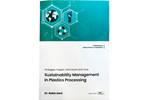Steer Clear of Greenwashing
Increasing demand for “environmental responsibility” from manufacturers, coupled with inadequately defined criteria, intensify the temptations to exaggerate claims of sustainability.

Getty Images/Petmal
You’ve probably all heard of the term “greenwashing.” It’s become quite fashionable of late, though Merriam-Webster.com says it dates back to the 1980s. Increasing demand for “environmental responsibility” from manufacturers, coupled with inadequately defined criteria, intensify the temptations to exaggerate claims of sustainability. So there’s a double warning in my headline: (1) Don’t risk your company’s reputation by succumbing to that temptation; and (2) don’t be fooled by such claims from others.
Dr. Robin Kent’s new book, Sustainability Management in Plastics Processing, which I’ve written about recently, has a whole chapter on “The Perils of Greenwashing.” Here’s one of his Tips on how to spot greenwashing:
“When a company spends more time and money redoing their logo to include green tints than they do on actually improving their sustainability, then you know they are indulging in greenwashing.”
Two examples he cites—hilarious or infuriating, depending on how you take them—are refillable aluminum water bottles labeled “BPA free” and shampoos advertised as “gluten free.” (A website for the latter allegedly claims that you might get some shampoo in your mouth or on your fingers and then lick them.)
Dr. Kent also notes that greenwashing is a “contagious disease”—if the competition is engaging in it, there’s more temptation to follow suit. But he warns that the consequences can include damage to your company’s image and reputation; reduced stakeholder confidence in the company; and increased complaints about misleading advertising.
Beware the Seven Sins.
Dr. Kent makes reference to a list of the Seven Sins of Greenwashing, first published in 2007 by TerraChoice, a Canadian environmental marketing, advisory and certification agency, that was acquired by UL in 2010. The Sinful Seven are:
• Sin of the hidden tradeoff
• Sin of no proof
• Sin of vagueness
• Sin of worshipping false labels
• Sin of irrelevance
• Sin of lesser of two evils
• Sin of fibbing
(More detailed description of those Sins can be found here.)
On the positive side, Dr. Kent advises manufacturers to obtain and study a guide to making responsible sustainability statements, ISO 14021: 2016 Environmental labels and declarations—self-declared environmental claims.
Greenwashing is bad, but so is its opposite.
Kent also lists these rules for making environmental claims. All such claims must be:
• Accurate
• Verifiable
• Relevant to the product
• Not misleading
• Specific
• Unlikely to result in misinterpretation or misunderstanding
• Relevant to the final product and total product lifecycle.
Kind of reminds me of the 12 points of the Boy Scout Law (which I had to memorize once upon a time), but only about half as many.
My reference to Boy Scouts, while admittedly facetious, is also somewhat relevant. Dr. Kent concludes his chapter on greenwashing with advice to not be afraid of appearing to be a “goody-goody.” Companies that do good work, environmentally speaking, may be shy about publicizing it. Kent calls that “greenblushing.” Don’t make that mistake either!
Related Content
-
‘Monomaterial’ Trend in Packaging and Beyond Will Only Thrive
In terms of sustainability measures, monomaterial structures are already making good headway and will evolve even further.
-
PHA Compound Molded into “World’s First” Biodegradable Bottle Closures
Beyond Plastic and partners have created a certified biodegradable PHA compound that can be injection molded into 38-mm closures in a sub 6-second cycle from a multicavity hot runner tool.
-
How to Extrusion Blow Mold PHA/PLA Blends
You need to pay attention to the inherent characteristics of biopolymers PHA/PLA materials when setting process parameters to realize better and more consistent outcomes.
















